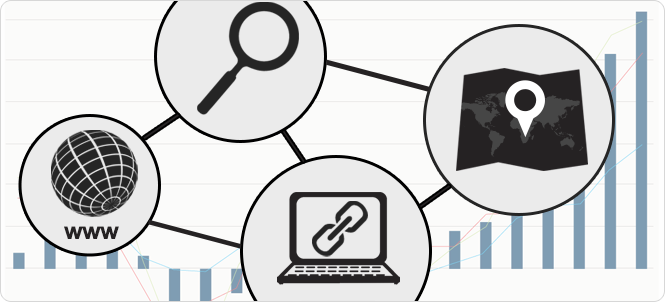2 Tips for Local SEO Marketing in 2013
with Knowledge Graph
With the release of Google’s Knowledge Graph opened the search world to a new world of possibilities. Knowledge Graph changed the search engines from a simple question and answer system, to a system that “understood” what you were looking for.
Knowledge Graph uses semantic-search or information gathered from the websites that Google crawls. Websites like your’s and mine. Semantics is based on meaning; semantic-search focuses on the meaning between words, phrases (sentences), and pixel data (Image search – for example you can search for images by color).
Okay, Knowledge Graph is powerful and all but what does it mean for your local SEO campaign?
Simply put, search engines today can “read” your website’s content and “guess” with great accuracy where you are located.

When your website is being analyzed by the search engines, they will compare your content with other websites using semantic-search data. If your website’s content is relative in meaning to other local website’s, then your value for that local search result will potentially increase.
Here are 2 tips to help get you started with local SEO.
Tip 1: Create content that includes local events, places, and businesses
One element you can implement right away is to start mentioning local events, places, and businesses. This doesn’t mean go revamp your content to mention as many local elements as you can, it simply means – if it benefits your reader to know about a specific location, business, or event then mention it!
Examples for Tip 1
Locations: When you are writing a blog post (I hope your taking advantage of the power a blog offers for your website, but that is a different discussion) try to use local cities as examples.
“Michigan is known for being the Motor City, or the birthplace of the auto industry. With a major industry comes supporting businesses, Troy’s, Farmington’s, and Detroit’s economy were mostly built from the manufacturing that supported the auto companies (Ford & General Motors). Because of that, today we find that a lot of local clients require unique approaches to their internet marketing needs.”
Tip 2: Get Backlinks from Local websites
Backlinks are still a very important aspect of SEO! Don’t think that backlink quality isn’t being examined by Google’s semantic-search system. Matt Cutt’s has expressed several times that backlinks from related, quality sites provide the best “link juice.”
Apply the same principles on content that includes local elements (See Tip 1) to building backlinks and now you’re building authoritative weight. Work to get backlinks from local businesses, local non-profits and local blogs for example.
Local Backlink Tip: Support a local event. Most events launch websites and are more than happy to link to your website when you offer your support. Whether that is by sponsoring, donating, or providing staff to help. Obviously a temporary backlink is not what you are aiming for, but rather a blog post on your sponsorship or another related article on their site would be ideal as it would be listed forever. Permanency and longevity of backlinks are important.
Short URL: webdi.us/89aIBn

Share